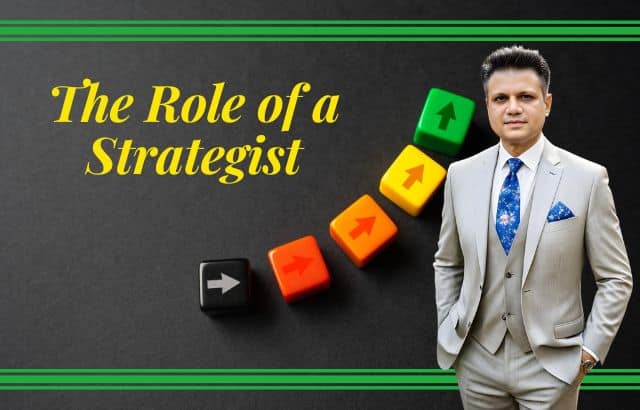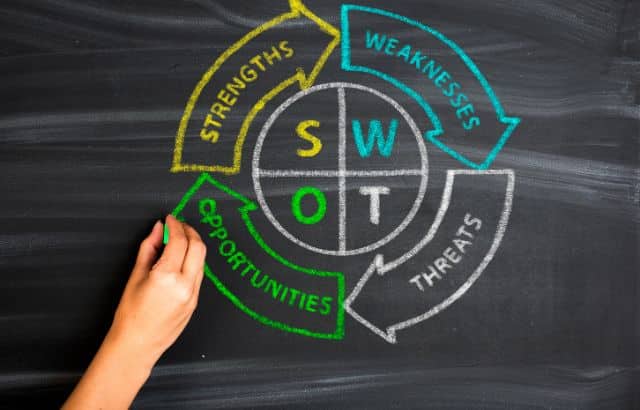Unseen Force in Success – In the fast-paced and ever-evolving world of business, success is often perceived as a culmination of factors: hard work, innovation, strategy, and timing. But there is a hidden force at play, an invisible but powerful energy that drives organizations to their pinnacle of success. It’s not always immediately visible, but it plays a critical role. This unseen force is strategy – the guiding hand behind every successful business venture.
One of the most influential strategists today, Hirav Shah, India and USA’s top business strategist, is recognized for his deep insights into this critical force. With his vast experience in helping businesses pivot, turn around, and reach new heights, he has become the go-to strategist for companies seeking growth and innovation.
Hirav Shah is the Founder of Bizz6, the world’s first business hub to diagnose, transform, accelerate, exit, flip, and validate businesses for complete success. His work has helped many entrepreneurs and businesses worldwide identify what sets them apart, make meaningful improvements, and scale faster.
Table of Contents
Unseen Force in Success – The Role of a Business Strategist

A business strategist is essentially the architect of success. Their job is to design a roadmap that aligns with the goals of the business while navigating the challenges that arise in the marketplace. Strategists do not just focus on immediate fixes but take a long-term view, ensuring that every decision made serves the larger picture of growth, sustainability, and market leadership.
Here’s how strategists like Hirav Shah approach business success:
1. Identifying Core Strengths and Weaknesses

Strategists begin by thoroughly assessing the business’s core strengths and weaknesses. This diagnostic step is crucial, as it helps identify opportunities for improvement. For example, a business might have excellent products but poor customer service. A strategist will work to elevate the customer service experience, thereby improving brand loyalty and satisfaction.
Example:
Consider a small e-commerce business struggling to gain traction despite having a quality product. Through strategic evaluation, the business strategist identifies that the brand’s online presence is weak. The strategist may recommend improvements in digital marketing strategies, enhanced website usability, and better customer engagement on social media platforms. This approach could lead to a significant boost in sales.
2. Unseen Force in Success – Setting Long-term Goals and Milestones

While day-to-day operations are important, strategists also help set long-term objectives. These can include goals such as expanding into new markets, increasing customer retention, or launching new products.
Example:
When a local restaurant wanted to expand, Hirav Shah worked with the owners to create a strategic plan for opening new branches across the city. By setting incremental goals like market research, location scouting, and marketing strategies, the business was able to smoothly transition into multiple locations, doubling its customer base in a year.
3. Innovation and Adaptation

In today’s market, innovation is key. A strategist helps businesses think outside the box and come up with creative solutions to problems. Whether it’s introducing a new product line, creating a unique marketing strategy, or adopting a cutting-edge technology, innovation can set a business apart from its competitors.
Example:
A tech startup in the healthcare space was struggling to stand out in a crowded industry. Hirav Shah introduced an innovation catalyst strategy that focused on unique partnerships with top hospitals to create custom software solutions. The business gained instant credibility and recognition, resulting in exponential growth and partnerships with major healthcare institutions.
4. Effective Resource Allocation

A good strategist knows how to allocate resources efficiently. They ensure that the right resources (financial, human, and technological) are used in the right areas, maximizing returns while minimizing unnecessary expenses.
Example:
For a manufacturing company that faced rising production costs, Hirav Shah recommended a strategy to streamline operations by adopting lean manufacturing principles. This not only reduced waste but also improved production efficiency, leading to significant cost savings and a better bottom line.
Roles of a Business Strategist:

- Diagnosing Business Health The first role of a strategist is to diagnose the current state of the business, identifying areas of improvement. This involves analyzing the business model, operational efficiency, and competitive landscape.
- Charting a Path to Growth Based on this diagnosis, strategists chart a path to growth by setting achievable goals, identifying new opportunities, and designing strategies to achieve sustainable growth.
- Execution and Monitoring Strategy is not just about planning; it’s about execution. A good strategist ensures that the plan is being executed effectively and makes adjustments where necessary to ensure optimal outcomes.
- Business Turnaround When businesses face difficulties or downturns, strategists like Hirav Shah specialize in turning them around. This involves identifying the root causes of failure and implementing solutions that breathe new life into the organization.
- Exit Strategy and Valuation Every business eventually reaches a point where an exit strategy is needed. A strategist helps prepare the company for a successful exit, whether that be through selling, merging, or other avenues, and ensures the business is valued appropriately to maximize returns.
Hirav Shah’s Top FAQs on Unseen Force in Success

Q: What does a business strategist do?
A business strategist helps businesses analyze their strengths, identify weaknesses, and create a clear, actionable plan for long-term growth. They guide organizations in resource allocation, market positioning, and innovation to reach success.
Q: How can a business strategist help my company?
A strategist can assist in diagnosing the health of your business, identifying opportunities for growth, and designing tailored strategies to meet your objectives. They also provide a roadmap for navigating challenges and seizing market opportunities.
Q: When should I hire a business strategist?
You should hire a strategist if you’re looking to grow your business, expand into new markets, or navigate complex challenges. A strategist can also be crucial if your business is facing stagnation or a downturn.
Q: How does a business strategist differ from a consultant?
While consultants provide specific advice or solutions for particular challenges, a business strategist focuses on the long-term vision and overall direction of the company. Strategists work on the bigger picture, creating comprehensive strategies for sustained growth and success.
Q: Can a business strategist help a startup?
Yes! A business strategist plays an integral role in helping startups grow, scale, and succeed. From refining business models to creating market-entry strategies, a strategist’s expertise can help startups avoid common pitfalls and achieve faster growth.
Example Calculations: Impact of Strategy on Profit

Let’s assume a business consultant recommends a strategic shift to improve customer retention by 10% in the next quarter.
- Current Revenue: $500,000 per quarter
- Customer Retention Rate: 60%
- Average Revenue per Customer: $500
If the customer retention increases by 10%, this means the company retains an additional 10% of its current customers.
- Additional Customers Retained: 10% of (500,000 / 500) = 100 customers
- Additional Revenue: 100 customers * $500 = $50,000
This small strategic change increases the business’s revenue by $50,000 per quarter, demonstrating the powerful impact of strategic decisions.
Conclusion

The unseen force behind business success is strategy. Through careful analysis, planning, and execution, strategists like Hirav Shah, the founder of Bizz6 and renowned business turnaround and validation expert, help businesses tap into their full potential. Whether it’s diagnosing weaknesses, implementing innovative solutions, or designing long-term growth paths, the role of a business strategist is crucial in achieving sustainable success. Harnessing the power of strategic planning can take your business from ordinary to extraordinary.










